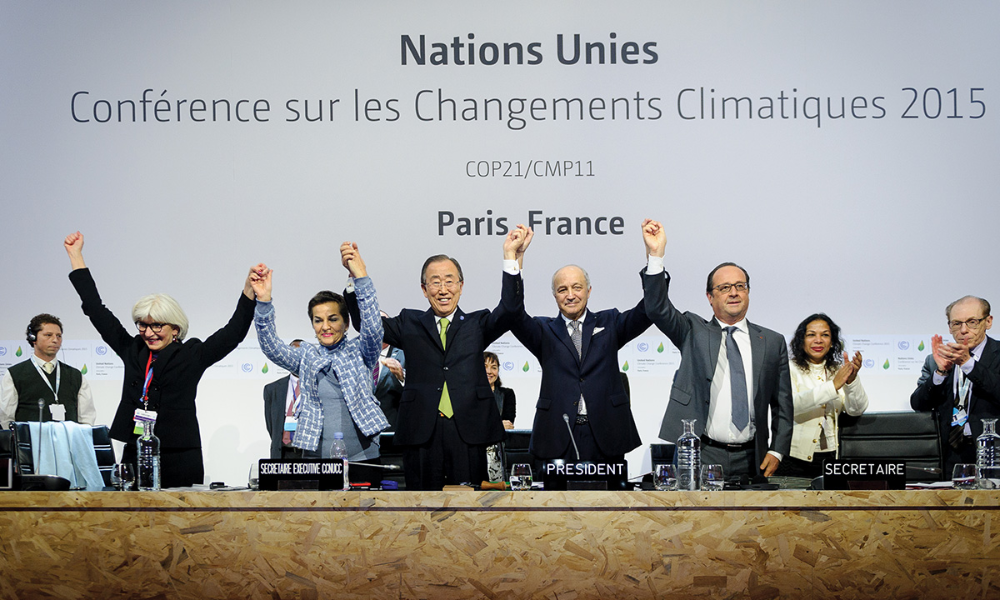Why NetZero 2030: The Paris Accord
The United Nations (UN) plays a central role in the global fight against climate change and the pursuit of a net-zero carbon future. As an international organization comprising 193 member states, the UN provides the framework, platforms, and strategies to address the climate crisis on a global scale, emphasizing collaboration, equity, and sustainability.
What is Net-Zero and Why is it Important?
Residential Clean Energy Credit
Achieving net-zero greenhouse gas emissions means reducing emissions as much as possible and balancing any remaining emissions with actions like carbon sequestration. The goal of net-zero is crucial to limiting global temperature rise to 1.5°C above pre-industrial levels, as outlined in the Paris Agreement, thereby averting the worst impacts of climate change. The UN recognizes that achieving net-zero is not only an environmental necessity but also a pathway to sustainable economic growth, improved public health, and social equity.

1. Limit Global Warming
The primary aim of the Paris Agreement is to cap global temperature increases at 2℃, with a more ambitious target of 1.5℃. Scientific evidence suggests that surpassing these thresholds could result in catastrophic climate impacts, including:
- Increased frequency and severity of extreme weather events.
- Widespread loss of biodiversity and ecosystems.
- Rising sea levels threatening coastal cities and small island nations.
2. Nationally Determined Contributions (NDCs)
Each participating country submits a Nationally Determined Contribution (NDC), detailing its plan to reduce emissions. These NDCs are reviewed every five years to ensure progress and encourage increased ambition.
3. Global Stocktake
The Agreement mandates a periodic assessment of collective progress, known as the Global Stocktake. This process helps nations identify gaps and implement necessary adjustments to meet the 2030 and 2050 climate targets.
4. Climate Finance and Equity
Recognizing the disproportionate impact of climate change on developing nations, the Paris Accord emphasizes financial support from wealthier countries. This includes funding for:
- Adaptation measures to build climate resilience.
- Transitioning to renewable energy.
- Protecting vulnerable communities from climate-related risks.
Why Global Citizens Must Act
Governments and corporations alone cannot meet the goals of the Paris Accord. Collective action by individuals is essential to drive meaningful change.
Reduce Your Carbon Footprint
- Use renewable energy in your home.
- Transition to electric vehicles or public transportation.
Support Sustainable Businesses
- Buy products from companies committed to sustainability.
- Avoid brands with poor environmental records.
Advocate for Policy Changes
- Push for stronger climate legislation in your community.
- Join campaigns supporting renewable energy adoption.
Educate Yourself and Others
- Stay informed about climate science and global initiatives.
- Share knowledge to inspire collective action.
The Global Significance of the Paris Accord
1. Universal Agreement
The Paris Accord is unprecedented in its scope, with nearly 200 signatories representing all major economies and emitters. This universal participation underscores the shared responsibility of combating climate change and safeguarding the planet.
2. Catalyst for Action
The Agreement has spurred a wave of climate initiatives, including: Corporate commitments to net-zero emissions. Investments in clean energy technologies. Localized sustainability programs addressing urban and rural challenges.
3. Legal Framework
Although the Paris Accord is not legally binding in terms of enforcement, its framework fosters accountability through transparency, peer pressure, and global monitoring mechanisms.
Ready to claim the solar incentives you deserve?
Contact us today to learn more about the IRA TAX PLAN and take the first step toward maximizing your solar tax savings.
1. Science-Based Targets
The Paris Accord’s goals are grounded in the latest climate science, providing a roadmap for achieving net-zero emissions. By 2030, significant reductions in carbon output are necessary to remain on track for a net-zero world by 2050.
2. Global Collaboration
Achieving NetZero 2030 relies on the cooperative spirit fostered by the Paris Accord. It encourages nations to share technologies, strategies, and resources to reduce emissions collectively.
3. Driving Innovation
The Agreement has catalyzed innovation across industries, from renewable energy systems and carbon capture technologies to sustainable urban planning. These advancements are critical for meeting the 2030 targets.
Challenges to Implementation
Despite its ambitious goals, the Paris Accord faces significant challenges:
- Insufficient NDCs: Current pledges fall short of achieving the 1.5℃ target, requiring more aggressive emission reduction plans.
- Financing Gaps: Many developing nations lack the financial resources to implement necessary climate measures.
- Political Resistance: Changes in government leadership can delay or reverse climate commitments, as seen in the U.S. withdrawal and subsequent reentry under different administrations.
The Paris Accord is humanity’s most significant agreement to combat climate change and build a sustainable future
Its ambitious goals require not just the commitment of nations but the active participation of individuals, businesses, and communities worldwide. By aligning with the principles of the Paris Accord, initiatives like NetZero 2030 can become a reality, ensuring a habitable planet for generations to come.
Together, we can make NetZero 2030 not just a goal, but a legacy.
